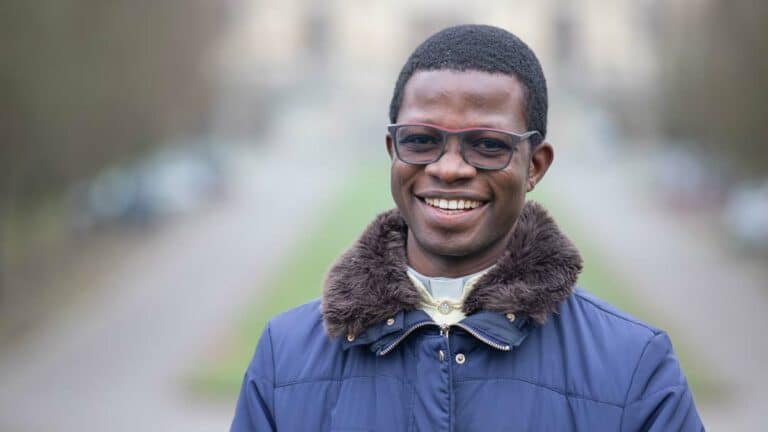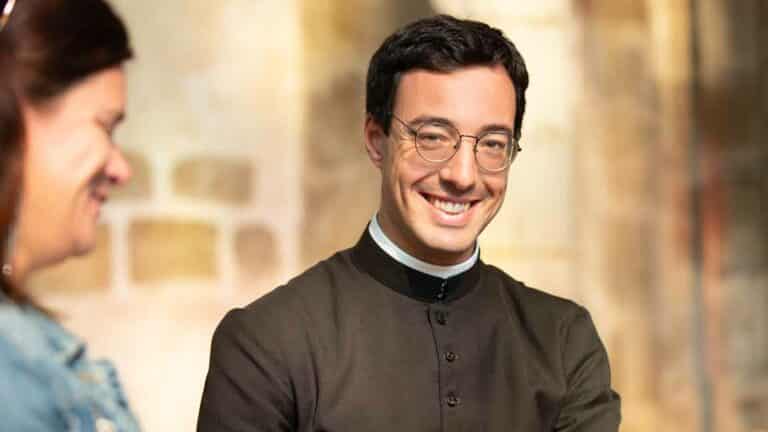When we try to figure out immortal bodies, we may think of Botticelli’s painting, Three Graces. Three women clad in light veils, are dancing on flower beds. With Pierre Gazeau, let’s try to clarify matters and describe the super powers of risen bodies, for the program Sanctuaires normands on RCF.
The resurrected bodies are impassible
Four properties, mentioned by Saint Paul, then by Saint Augustine and Saint Thomas of Aquinas can be described. First, the inability to suffer, called ‘impassiveness’. After the resurrection of the flesh, we will no longer suffer from diseases or psychological of physical injuries.
Second capacity of glorious bodies: subtlety
The term ‘spiritual bodies’ is sometimes used. It does not mean however that they will be translucid. When Saint Paul uses the words ‘spiritual body’ or ‘subtle body’, he refers to the strong link between the body and the mind. We can already see this on earth, our body and our mind are united because our mind does not wander outside our body. Still, there is clearly a duality.
Let’s take a real-life example. When the alarm clock sounds in the morning, your mind knows that you have to wake up. But your body does not want to. On such occasion you feel this duality very strongly. We hate to do it and it is often a struggle. Saint Paul described it when he remarked that “The good that I want, I do not do, but I practice the very evil that I do not want. ” (Rm 7, 19).
Agility
In other words, the body will be so perfectly united to the mind that whatever the mind wants, the body will want too. This perfect unity of body and soul is called the subtlety of spiritual bodies. In heaven, our bodies will be alleviated from the weight of this duality, which is the weight of our sins and our burdens and living will become very easy. Another capacity stems from this – agility.
Another super power: mental clarity
The body of the risen Christ is luminous. To understand this, we can consider how God’s presence was experienced in the Old Testament. One example is when Moses comes back from the Sinai where he has had encounters with God for forty days. His face is radiant and transfigured.
We may also think of Transfiguration, when Jesus appeared illuminated and transfigured, which means he was in the very condition of a glorious body. In Heaven, our bodies will have a likeness with the body of Christ: they will radiate his light.
This does not mean that they will illuminate the darkness but it shows their radiance in the new creation. What the soul will be experiencing will gush out and be visible through our body. The joy of our soul will be reflected, and will show through our body. Our body will become light because we will be receiving that light, God’s influence on us. We will be so close to God that God’s irradiation will also be ours.
A Playstation in Heaven?
When we think of Heaven and what our bodies will be like, we can hardly imagine being able to rejoice without possessing what makes us happy today: a car or a house, for example. I really like what the Catechism of the Catholic Church has to say about this: our yearnings and the desires of our heart are the starting point, initiating what God is preparing for us.
I remember a little boy who once asked me: “In Heaven, shall we have PlayStation 5?” When I said ‘No’, he said that in that case he did not want to go to Heaven. As his answer bothered me, I recalled what the Church has to say, and I found the answer during the night. I could very well have said “Yes”, because his hope was not exactly to find the object, the joystick and the screen. What mattered was his joy when he would turn his game console on and play with it.
It seems to me that the pleasure he enjoys on earth with his video games is given by God in order for this little boy to turn to Him so that he would get a taste of eternal life. Indeed, our small joys, even if they are not perfect, are the foretaste of a much greater joy for which we are made.
Are the resurrected bodies augmented?
Clearly, in our world today we experience a temptation to improve our bodies. This can be a bad thing if the reason is that you don’t like your body as in such a way that you refuse it. But clearly too, our body has limited abilities and causes us some pain. Therefore it is best to avoid the word “augment”. In Heaven, by the grace of God, if the Lord really wants this, our bodies might be able to do things that we are unable to do today. Although this will not happen if we refuse the body we have now.
Bodies will not be bionic or as we may see in sci-fi movies. Rather they will be fully unfurled. Our sensations will be much stronger, much more intense, multiplied.
In which place will the resurrected bodies be staying?
The glorious bodies will be in the new creation. This is part of the events of the end of times and Parousia as announced by Jesus. When he comes back in glory to judge the living and the dead (on the Last Judgement), the bodies will rise and the creation will be renewed. Today, as Saint Paul writes, the creation is still “groan[ing] and suffer[ing] the pains of childbirth together until now” (Rom. 8:22).
In the Book of Revelation, Saint John uses the terms of ‘the New Jerusalem’. This shows us that, even though our bodies are suffering today, they are meant to rise again, just like the creation. Indeed, what God created in Genesis will not be destroyed by sin but recreated in a new way. This is how we can understand the concept of ‘the new earth’ and ‘the new heavens’.




